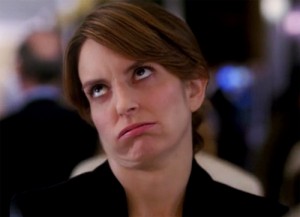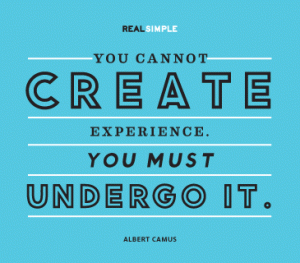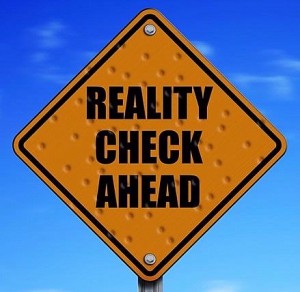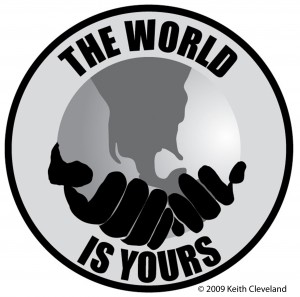UX Designer Just Doesn’t Make Sense… Or Does It?
As I pour through my spreadsheet of blog ideas, I keep happening upon (probably not by accident) ideas that I have had over the years around the term UX Designer and, more specifically, whether or not the term makes sense (I.e. means something). Now, I realize that the title UX Designer DOES in fact “mean something” to many people. I think what has sparked this flow of ideas for me, however, is that the title means so many different things to so many different people. This space between the meanings is where I’m finding both internal and external conflict around the title’s purpose. Today, I want to dive into this even further, and, hopefully, get your thoughts and feedback as well (Yes, I’m adding another log to this fire. So, all you old school UXers can stop rolling your eyes now.).

This topic is nothing new. Most of the known digital technology industry walks around having a firm belief in the validity of the term UX Designer. Many people think things like “User Experience is, of course, the most important part of the product AND you need to have a UX Designer to have a ‘good UX’”. Or, other people think things like “UX Designers. Those are the people that make sure the product’s UX (but really they mean interface) is great!”. Or, they may think “UX Designers. Those are the people that are glorified visual designers.”. Whatever anyone thinks, it’s obvious that the title UX Designer is something that exists in a myriad of ways. In the digital design community, many times it’s a lauded profession; one that you acquire after knowing everything there is to know about “the UX” including interaction design, information architecture, visual design, and more. For this last point I can admit that I have also thought that UX Designer was a lauded profession. I bought into this concept… hell, I built a business around this concept! But today, I wonder, is the title UX Designer really all I, and many others (those that think it’s the *ish title), have made it out to be?
Why Lis, Why?
Why am I even pondering beating this dead horse? Well, as I was pouring through said blog idea spreadsheet, I found an idea I had back in early 2013. Seems I was scouring the web (read wasting time) and I found this quote, and I realized I needed to get this thought out of my head.

Although this quote was not targeted at the field of UX Design, it still stopped me in my tracks and caused me to reflect on the profession. Why? Because it brought to the surface, again (at least for me), the question of whether or not an experience can be designed. Of course, this quote that I found is not based on scientific or academic research (although if you have some to share I’d love to see it!), but the meaning of it felt true to me. So I’m going to move forward in this post assuming it is true (this, dear reader, is what is called fair warning).
The Debate
The debate on whether or not an experience can be designed has been raging on since, what feels like, the beginning of the field. The following are just a few of the many pieces out there on the topic:
Can Experience Be Designed – IA.net
Yes, Experience Can Be Designed – UXmag.com
“Can experience be designed?” Yes. No. Wait, yes. But. – adaptivepath.com
The way that I see it, is that each side is looking at the User’s Experience as one of two things. Those that agree with the idea that an experience can be designed often conceive the user experience as an input into a product or service. It is something that happens before the product or service is created and a user uses it, i.e. something they “do” to make a product or service better – “I do UX!”. On the other hand, those that say that experience can’t be designed, but can be designed for, see that the user experience as an output of the product and service, i.e. something that happens because of using a product or service – “How can you do something that happens later?”.
The Realization
I’ve somehow found myself a part of this debate, and, have recently realized that I firmly agree with the latter, UX is an output NOT an input. Meaning I believe that the user’s experience exists when a user uses a product or service; i.e when they undergo it. I don’t think it can be argued that, to an extent, we can predict when a user will have a better experience if everything and everyone shown here has been accounted for in the creation of that product or service the user is using. However, I no longer believe that User Experience is something we inject into the creation of said product or service.
Given this new realization, I asked myself: If UX is an output and not an input… can the title UX Designer make sense? Can there be someone whose job it is to design the user’s experience IF the user’s experience it not something that goes into the product or service, but something that comes out of it.
I would argue that No, this title does not make sense (I.e. mean something) given this point. And, to be honest with you, I don’t have much more to say on what my new viewpoint means (so I suppose my good friend Donna Lichaw might say that this piece is a cliffhanger).
And Now It’s Your Turn
Either way, I’d love to hear your thoughts and opinions in the battle that never ends. Do you think the UX is an input or an output? Given your opinion does the title UX Designer still make sense to you and why?
Whew ok folks there you have it. Another piece of wood added to this fire. Let the flames rage on!
What to hear more about this topic? Check out my Why I’m Sick of Calling Myself a UX Designer talk this June at Future Insights Live! in Las Vegas. Get 15% off with promo code: FILSPEAK15. Hope to see you there!





